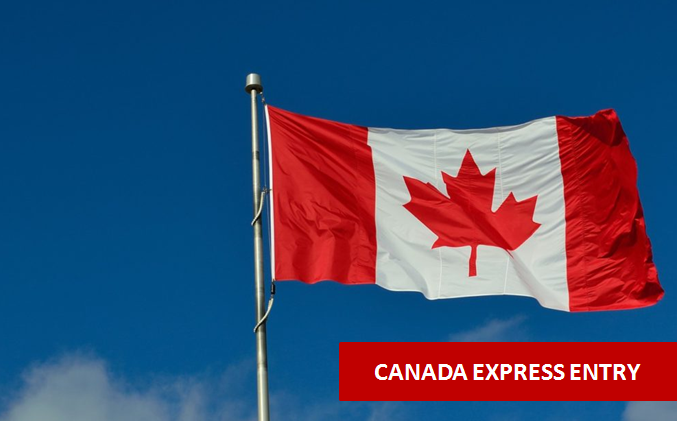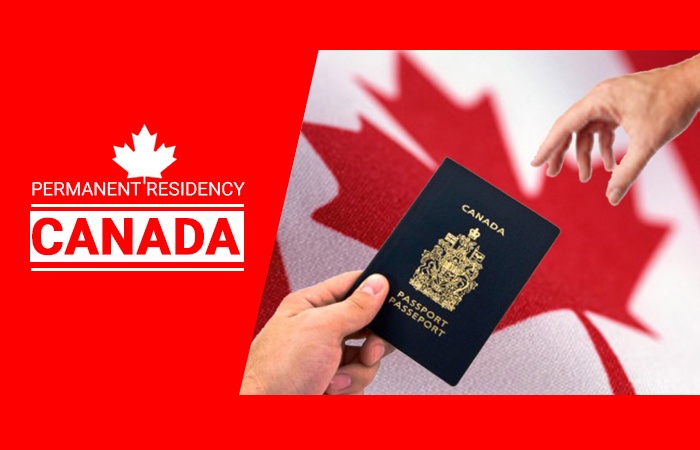Canada has always been seen as a highly hospitable nation for immigrants, providing them with a superior quality of life, a wide range of prospects, and a flourishing economy. The Express Entry program is well recognized as a highly sought-after and effective immigration method for qualified individuals and their accompanying families to relocate to Canada. The Express Entry system, which was implemented in January 2015, is a merit-based immigration system that evaluates applicants on many criteria like age, educational background, professional experience, language competence, and adaptability. This article aims to examine the Express Entry program, including its eligibility requirements and the procedural aspects associated with acquiring Canadian permanent residency via this efficient approach.
The understanding of the Express Entry Program
The Express Entry program serves as an application management system employed by the Canadian government for the purpose of overseeing and facilitating the processing of applications related to economic immigration programs. The procedure consists of three sequential steps, which encompass the establishment of an online profile, the reception of an Invitation to Apply (ITA) for permanent residency, and the submission of a comprehensive application within a designated deadline.
The Express Entry scheme encompasses three primary economic immigration programs:
1. The Federal Skilled Worker Program (FSWP) is designed to cater to skilled professionals who possess job experience that has been acquired outside of Canada.
2. The Federal Skilled crafts Program (FSTP) is designed to cater to those who possess expertise in various skilled crafts and have acquired relevant work experience in certain vocations.
3. The Canadian Experience Class (CEC) is a program designed for those who possess Canadian work experience, including international students and temporary foreign employees.
Eligibility Criteria for Express Entry
In order to qualify for the Express Entry program, individuals must satisfy the requirements for at least one of the three economic immigration categories outlined before. Furthermore, it is imperative that they satisfy the subsequent criteria for eligibility:
1. Language proficiency: It is a requirement for candidates to exhibit language competence in either English or French by the completion of an authorized language assessment, such as IELTS, CELPIP, or TEF, and achieving a minimum score in each linguistic competency.
2. Educational Requirement: Prospective candidates are required to possess a foreign educational qualification that is deemed comparable to a Canadian secondary (high school) diploma at minimum.
3. Work Experience: Prospective applicants are required to possess a minimum of one year of uninterrupted full-time or an equivalent amount of part-time skilled work experience in an activity classified under the National Occupational Classification (NOC) skill level 0, A, or B, during the preceding decade.
4. The Comprehensive Ranking System (CRS) score is determined by evaluating many aspects like age, educational background, professional experience, language competence, and more criteria in order to rank candidates. The Comprehensive Ranking System (CRS) score is utilized to ascertain an individual’s ranking inside the Express Entry pool.
5. Financial Resources for Settlement: Prospective immigrants are required to demonstrate the financial means to sustain themselves and their dependents in Canada, unless they possess a legitimate employment offer or are now engaged in employment or education within the country.
The Express Entry process refers to the immigration system implemented by the Government of Canada to manage and facilitate the selection of skilled foreign workers for permanent residency.
1. Create an Online Profile
In order to initiate the Express Entry procedure, individuals are required to establish an electronic profile using the official website of Immigration, Refugees, and Citizenship Canada (IRCC). The profile encompasses several aspects such as age, educational background, professional experience, language competence, and more particulars that collectively influence their Comprehensive Ranking System (CRS) score.
2. Acquire a Comprehensive Ranking System (CRS) Score
Candidates are assigned points based on many variables, including age, educational background, professional experience, language skills, and flexibility, as indicated in the presented profile. The cumulative points are used to calculate their Comprehensive Ranking System (CRS) score.
3. To proceed, please input your details into the Express Entry Pool.
Individuals who satisfy the eligibility requirements for at least one of the economic immigration categories and possess a competitive Comprehensive Ranking System (CRS) score are included in the Express Entry pool. The individuals’ profiles inside the pool are assessed in relation to one another, and those with the most favorable scores are granted Invitations to Apply (ITAs) for Canadian permanent residency. These invitations are issued through regular Express Entry drawings administered by the Immigration, Refugees and Citizenship Canada (IRCC).
4. The individual received an Invitation to Apply (ITA).
Individuals who are granted an Invitation to Apply (ITA) are given a period of 90 days within which they are required to submit a comprehensive application for Canadian permanent residency. The Information Technology Agreement (ITA) outlines the specific documentation and information that must be provided in order to successfully finalize the application.
5. Submit a Complete Application
In order to proceed with the application process, it is imperative that all required documents and information be included in the submission.
In order to ensure the submission of a comprehensive application, candidates are required to furnish all requisite documentation, undertake medical evaluations, and procure police clearance certificates. In addition, it is imperative for individuals to substantiate their compliance with the qualifying requirements of the economic immigration program under which they have been chosen.
6. Await the Outcome of the Application
Once candidates have submitted a comprehensive application, they are required to await the processing of their application by the Immigration, Refugees and Citizenship Canada (IRCC). The duration of processing may exhibit variability contingent upon the quantity of applications received and further influencing factors.
7. Receive Confirmation of Permanent Residency (COPR)
The individual will get confirmation of their permanent residency status by the issuance of a document known as the Confirmation of Permanent Residency (COPR).
Upon the approval of the application, successful candidates will be issued a Confirmation of Permanent Residency (COPR) as well as a permanent resident visa, if deemed necessary. The Certificate of Permanent Residence (COPR) stipulates the designated deadline by which applicants are required to relocate to Canada in order to attain permanent residency status.
8. The Process of Immigrating to Canada and Acquiring Permanent Residency
Upon arriving in Canada, individuals are required to provide their Confirmation of Permanent Residence (COPR) and, if appropriate, their permanent resident visa to the immigration officer stationed at the port of entry. Upon being awarded permanent residency, individuals and their qualified family members are able to avail themselves of the advantages associated with residing and engaging in employment in Canada on a permanent basis.
The Express Entry Program offers several advantages.
The Express Entry program has several benefits to anyone aspiring to get Canadian permanent status.
1. Fast and Efficient: The Express Entry method is specifically designed to expedite the processing of applications, resulting in the issuance of Invitations to Apply (ITAs) for applicants who possess competitive Comprehensive Ranking method (CRS) scores.
2. Adaptability: Prospective applicants have the opportunity to enhance their Comprehensive Ranking System (CRS) scores by regularly updating their profiles inside the Express Entry pool.
3. Provincial Nomination: Individuals inside the Express Entry pool have the opportunity to receive a nomination from a province or territory through the Provincial Nominee Program (PNP), resulting in a substantial increase to their Comprehensive Ranking System (CRS) score.
4. Factors related to Spousal/Common-law Partner: Individuals who have a spouse or common-law partner may be eligible to get additional Comprehensive Ranking System (CRS) points based on their partner’s fluency in language, level of education, and professional background.
Conclusion
The Express Entry program has significantly transformed the immigration procedure to Canada, providing a quicker and effective avenue for qualified individuals and their families to get permanent residency. The realization of individuals’ aspirations to reside and engage in professional activities inside Canada can be accomplished through the establishment of an internet-based profile, attainment of a competitive Comprehensive Ranking System (CRS) score, and the proficient fulfillment of the application procedure. Canada, renowned for its inclusive and heterogeneous society, presents a plethora of prospects for individual and vocational advancement. The Express Entry program provides opportunities for people and families to enhance their quality of life, get access to high-quality education, and contribute to a prosperous economy in Canada.






